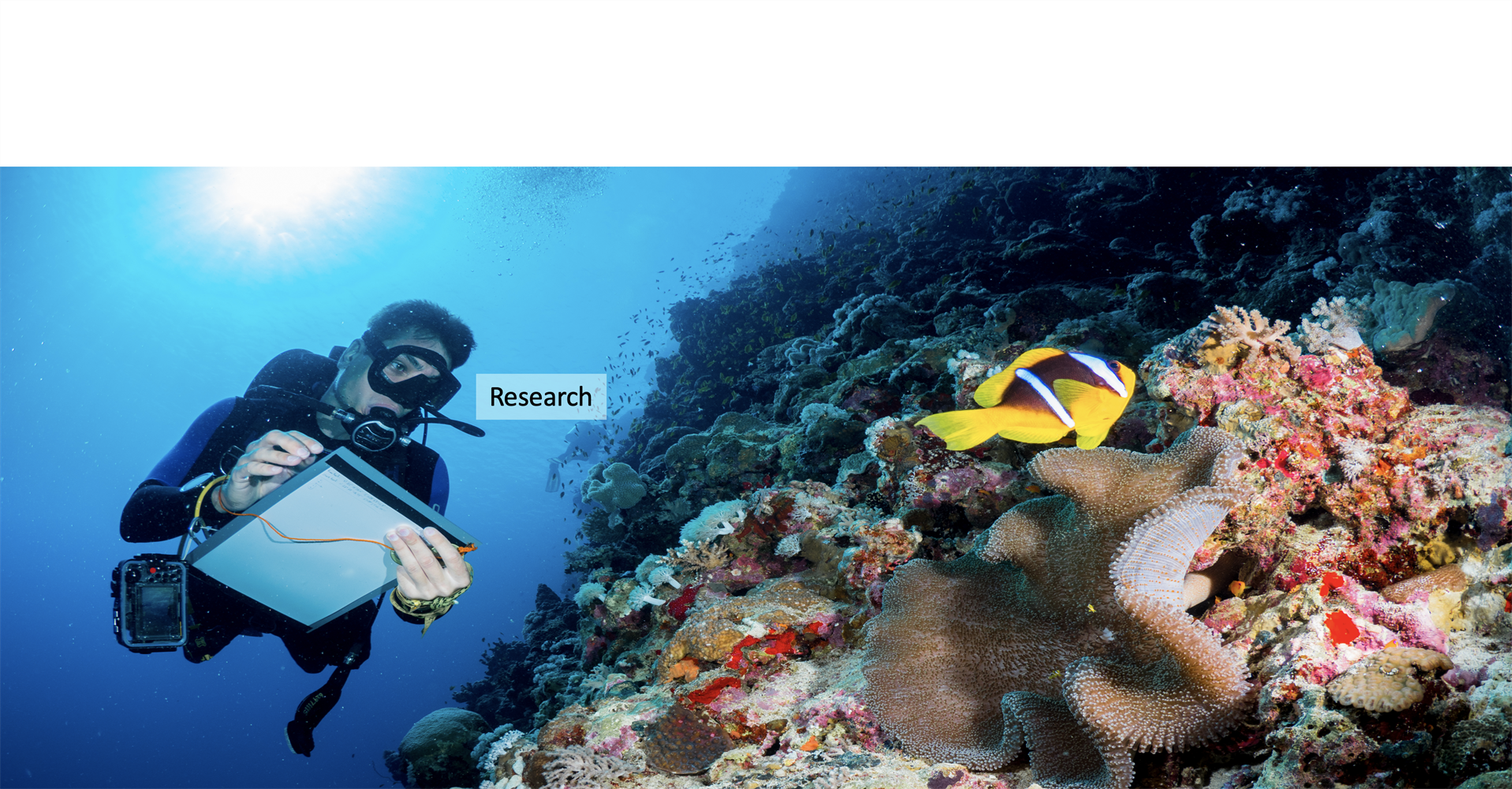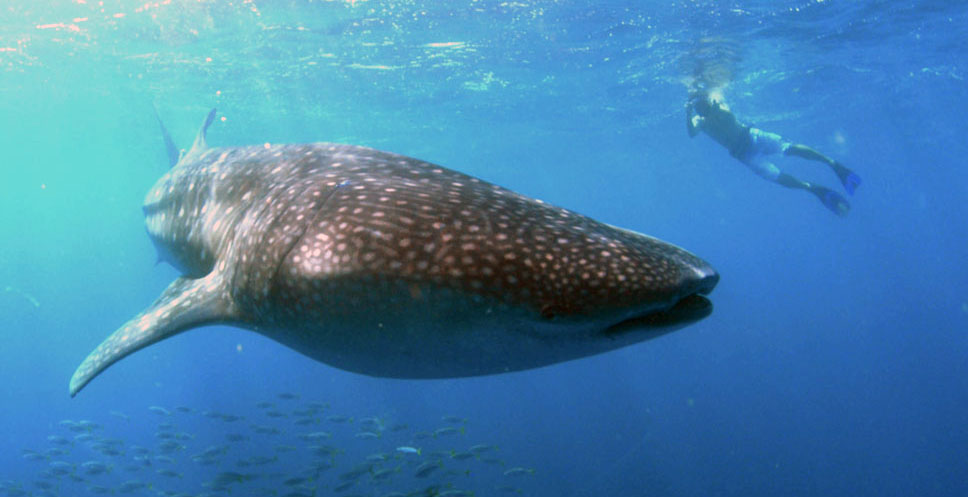

Research Overview
Our lab is engaged in several interdisciplinary projects addressing numerous aspects of coral reef ecology. KAUST, located on the shore of the Red Sea, offers a unique combination of wonderful access to coral reefs and world-class research laboratories. Much of our research effort is focused on this under-studied Red Sea system on our doorstep, but we also maintain projects based at a range of field sites around the world. One of the primary unifying themes of these projects is movement ecology, with studies ranging from larval fish dispersal to whale shark movements. These projects utilize several methodologies, described below. The findings of these projects are immediately relevant to management and will ultimately be used to guide the design and implementation of marine protected areas (MPAs) within Saudi Arabia and other study areas.
Other major research themes include life history studies, food web ecology, as well as evolutionary ecology and biology. Life history studies are fundamental for conservation and management of any species, and target knowledge gaps such as growth rates, age or size of reproductive maturity, population demographics, and other characters. Our food web ecology studies employ novel techniques we have developed and are revealing critical energy pathways that traditional food web studies have not been able to detect. Understanding these food webs will help to more accurately assess the function of complex reef systems and predict how reef fishes will be affected by climate change. Evolutionary studies, including phylogeny and phylogeography, are primarily focused on reef organisms endemic to the Red Sea, including poorly understood cryptobenthic fish communities.
We believe outreach and education go hand-in-hand with research, and are always happy to share our excitement for the marine world with anyone who will listen. Members of our lab are continually involved in interacting with local dive clubs, schools, and community groups to answer questions or give presentations about coral reefs. For more information, please visit the Outreach page.
~~~
Current
Research
Coral reefs are incredibly biodiverse ecosystems with many new species yet to be discovered, described, and understood.
Many taxa of marine megafauna have conservative life histories, move between national jurisdictions, and are exposed to growing suit of threats from human activity. As ecologically, economically and culturally important animals, targeted study is required to advance their conservation.
We must bend the biodiversity loss curve to avoid an Anthropogenic mass extinction. Understanding and managing human impacts on marine animals will be critical to our success or failure.
